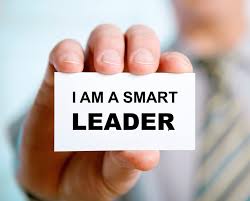The leader’s world is one that is busy, demanding and complex. Many leaders find themselves distracted to the point where they are no longer ‘present’. In this world there can be many ‘casualties’ as things get overlooked, taken for granted or ignored. Culture is one such thing.
Peter Drucker once said that, ‘culture eats strategy for breakfast every time’ and he was spot-on. Culture can be described as, ‘the way things are done around here’ or ‘what people do when no one is looking’. A more formal definition would be that culture is the set of ‘prevailing ideas, values, attitudes and beliefs that shape the way people think, feel and act – often unconsciously’.
 Smart leaders understand the following about culture:
Smart leaders understand the following about culture:
• People are loyal to the culture above the strategy
• Strategy will get you over the next hill or two but it is your culture that will determine whether or not you get to the final destination
• A dysfunctional culture will destroy a great strategy and ultimately even, a great company
• Your culture determines important aspects of your company such as resilience, creativity, communication, accountability, risk taking, community and energy. To name but a few.
• Culture is your competitive differential
• Culture cannot be copied
• Culture is lived
Smart leaders understand that everything they do and say contributes to the organisational culture. They pay close attention to their actions and words and those of their senior leadership team.
Smart leaders act quickly when it comes to breeches of the desired organisational culture and are equally quick to compliment and reinforce those actions that contribute toward building the desired culture.
Smart leaders are intentional when it comes to organisational culture.
Organisational culture becomes a filter through which decision-making, strategy, tactics and behaviour are all filtered and it plays a practical and daily role within the business.
As a leader, the culture you have within your organisation is up to you. If you don’t like what you see when it comes to the prevailing culture then it is up to you to do something. USA President Truman famously had a sign on his desk in the oval office that read, ‘The buck stops here’. When it comes to most things, but especially organisational culture, the same could be said of your office and station within the company you serve and lead.
The leaders role in the organisational culture is perhaps one of the least understood and most ignored areas of leadership responsibility; yet it may be the most important of leadership responsibilities.
Culture matters. Smart leaders understand that and act on it with intent and consistency.
How would you rate and describe your organisation’s culture?


